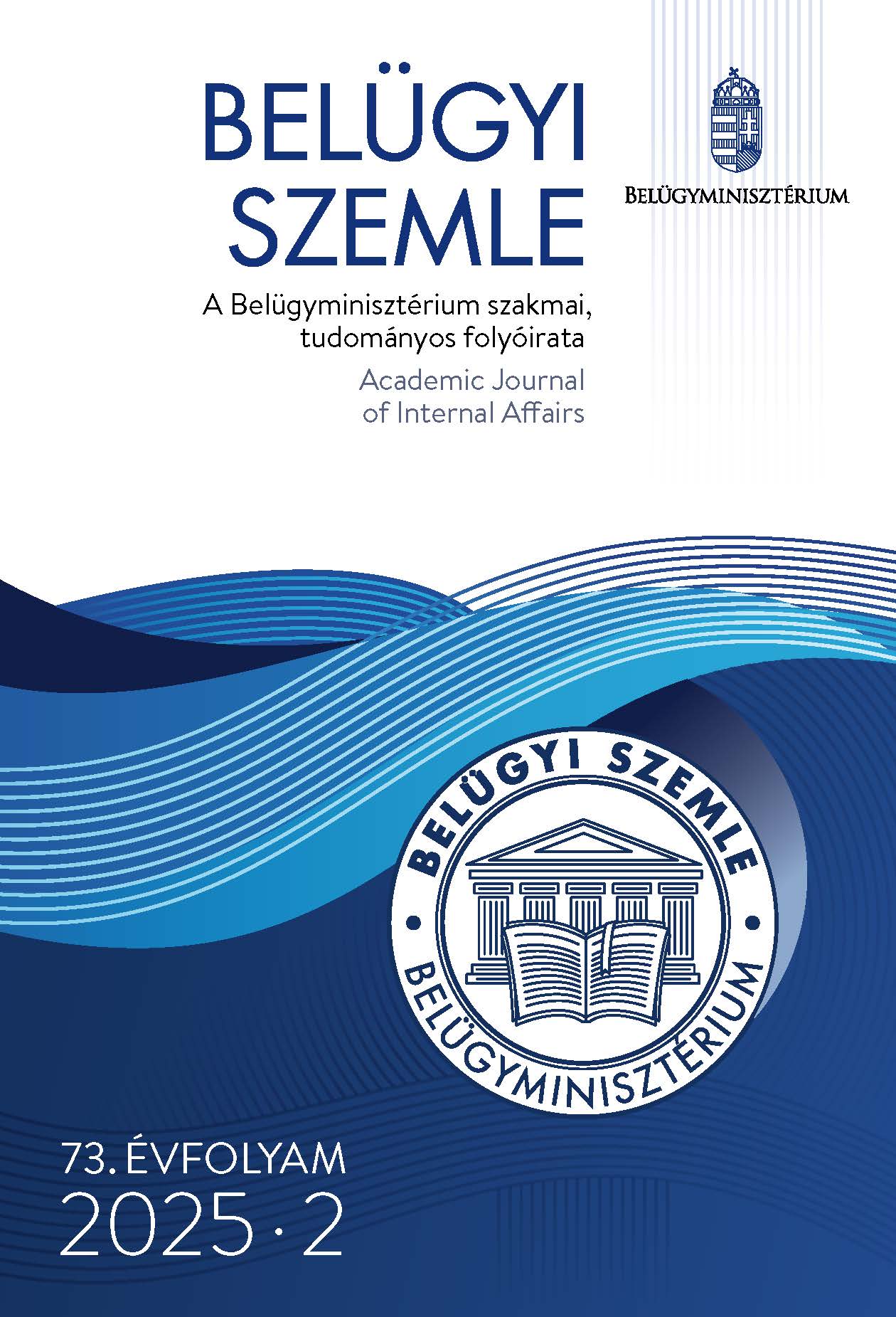Absztrakt
Aim: In Hungary, few studies deal with the structure and functioning of the Spanish police. The present study takes a unique approach to the topic from a minority language perspective, which can serve as a lesson for other minorities, such as those living beyond the Hungarian border.
Methodology: The methodological approach is based on documentary analysis. The study examined the Spanish Constitution, the Statute of Autonomy of Catalonia, and the regulations and laws relevant to the language issue and police force. Part of the study is based on the report of the European Charter for Regional or Minority Languages. Internet resources such as articles and websites are also examined.
Findings: State police forces (Spanish National Police and Civil Guard) often discriminate against Catalan-speaking citizens. In the case of Catalonia's police force, there is no linguistic discrimination against citizens, but officers are obliged to use Catalan within the organization, despite the fact that both Spanish and Catalan are allowed in Catalonia.
Value: The value of the study lies in the fact that it draws attention to a phenomenon that needs to be addressed. By publicizing the problems related to language use, it is an opportunity to improve the situation. The study could raise social awareness of the problem of language discrimination. Awareness could trigger changes in the functioning of police organizations and in the development of mechanisms to regulate language use. There is a paucity of research on the subject, so this study will provide new information and fill a research gap that has received little attention. In my future research, I will certainly examine the other autonomous police forces in Spain from the perspective of minority language use.
Hivatkozások
Díaz, S. B. (2016). El camino a un nuevo modelo de policía en España [The path to a new police model in Spain] [Doctoral dissertation].
Győri Szabó R. (2004). Katalónia, Baszkföld, Galícia autonómiája [The autonomy of Catalonia, the Basque Country, and Galicia]. Magyar Kisebbség, 9(1–2), 497–528.
Herrero, A. G. (2006). La ley catalana del sistema de seguridad pública y el proceso de desarrollo de la policía autonómica [The Catalan law on the public security system and the development process of the autonomous police]. Revista catalana de seguretat pública, 6(17), 129–161.
Kardos G. (2022). A kisebbségi nyelvi jogok szükségessége: néhány elméleti és nemzetközi jogi megfontolás [The necessity of minority linguistic rights: Some theoretical and international legal considerations]. Magyar Tudomány, 183(6), 699–706.
Nagy N. (2017). Rendőri feladatokat ellátó szervek Spanyolországban [Law enforcement agencies in Spain]. Magyar Rendészet, 17(5), 145–160.
Nagy N. (2019). A hatalom nyelve – a nyelv hatalma. Nyelvi jog és nyelvpolitika Európa történetében [The language of power – The power of language: Linguistic rights and language policy in European history]. Dialóg Campus Kiadó.

This work is licensed under a Creative Commons Attribution-NonCommercial-NoDerivatives 4.0 International License.
Copyright (c) 2025 Belügyi Szemle

